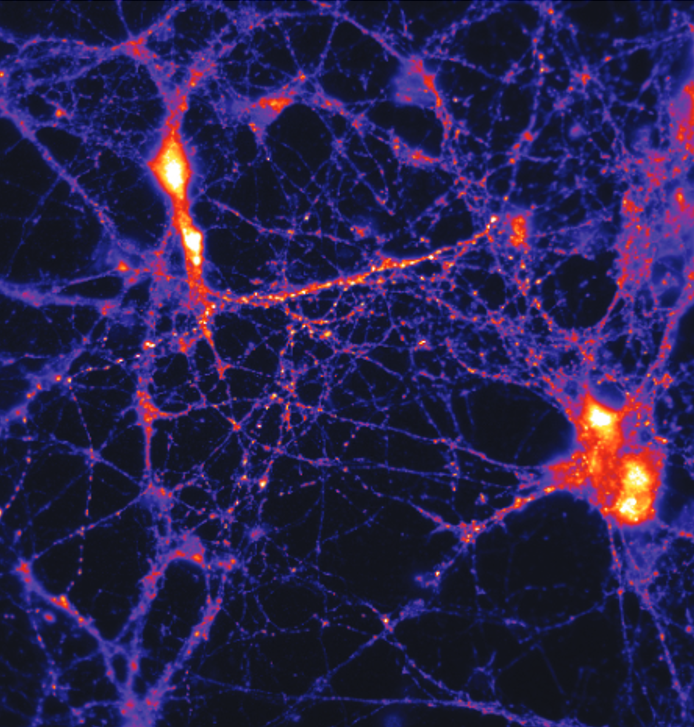Michael Cousin is Chair of Neuronal Cell Biology at The University of Edinburgh’s Centre for Discovery Brain Sciences. He is also Head of PreClinical Research at the University’s Muir Maxwell Epilepsy Centre.
The release of neurotransmitters from neurons is critical for the brain to work normally. Synaptic vesicles — tiny molecular compartments that store neurotransmitters — carry out part of this process. My lab studies how changes in neuronal activity impact on the assembly of synaptic vesicles and how it could affect neurodevelopmental disorders such as autism spectrum disorders and epilepsy.
INVESTIGATING THE FUNDAMENTAL EVENTS CONTROLLING SYNAPTIC VESICLES

Synaptic vesicles are small compartments that store neurotransmitters within the brain’s nerve cells. They release a neurotransmitter following activation. Because of their scarcity, neurons rebuild synaptic vesicles locally at special release sites. They also refill synaptic vesicles with neurotransmitter and prepare the vesicles for the next neuronal stimulus. For the brain to develop and work normally all of these events must occur with high accuracy and precision.
My laboratory investigates the fundamental events that control the generation, movement and fusion of synaptic vesicles. We are interested in how changes in neuronal activity impact on the assembly of synaptic vesicles — specifically the number and type of molecules that they contain. These are critically important features since small sometimes imperceptible changes in the molecular content of synaptic vesicles results in profound effects on neurotransmitter release.
We have a particular interest in neurodevelopmental disorders since an increasing number of genetic studies have shown that mutations in genes identified in patients with these disorders cluster around the key molecular events relating to neurotransmitter release.
Our lab discovered that mutations in the synaptic vesicle molecules Synaptophysin and Synaptotagmin result in both altered synaptic vesicle composition and subsequent defects in neurotransmitter release. We are expanding this work to examine synaptic vesicle generation and trafficking in a series of pre-clinical models of neurodevelopmental disorders.
We anticipate that this work will lead to us identifying a small cohort of molecular events that are highly susceptible to mutations in a number of key genes identified in neurodevelopmental disorders. We hope that this will allow future therapeutic intervention to either fully or partially restore normal neurotransmitter release.
Email: M.Cousin@ed.ac.uk




